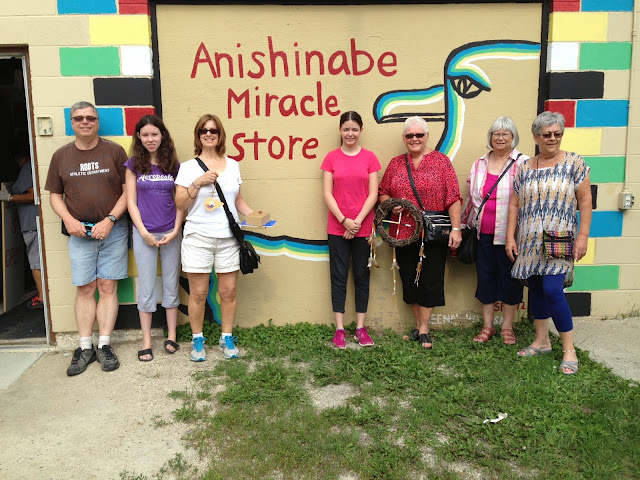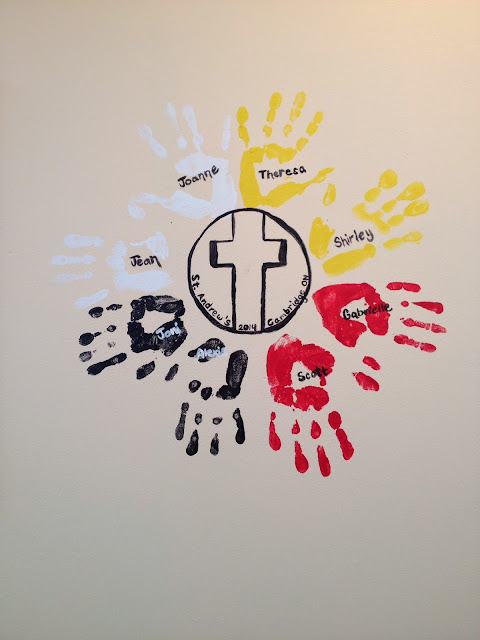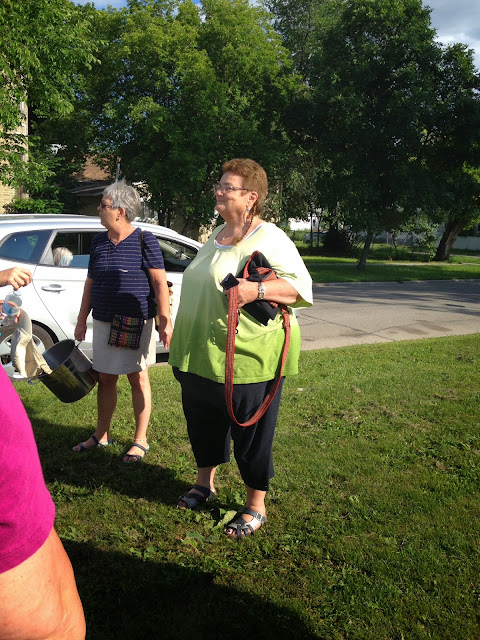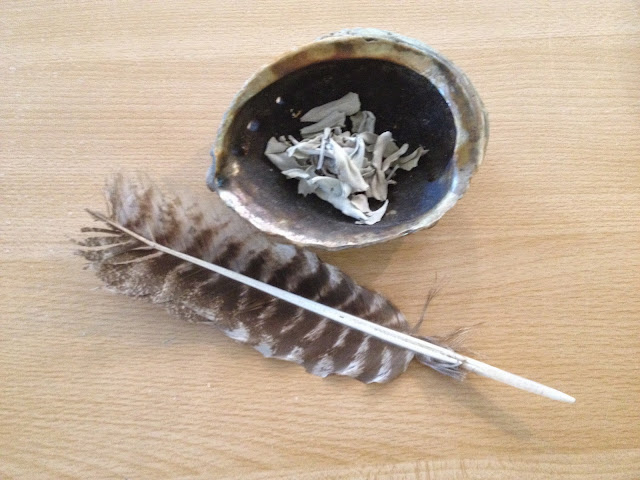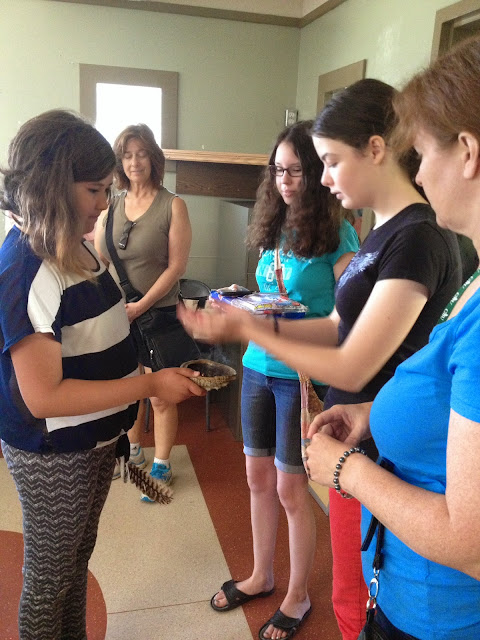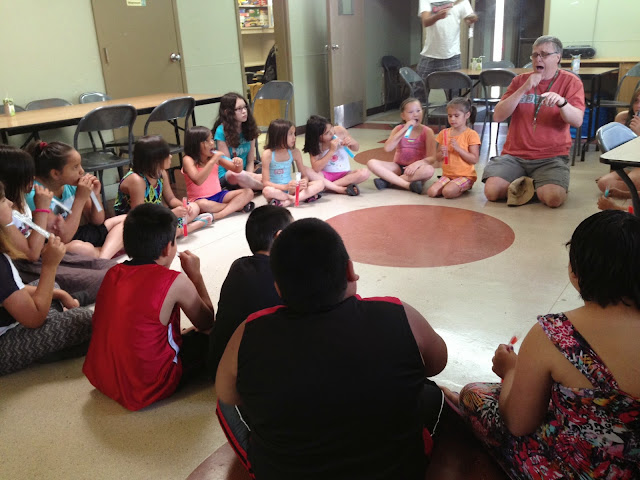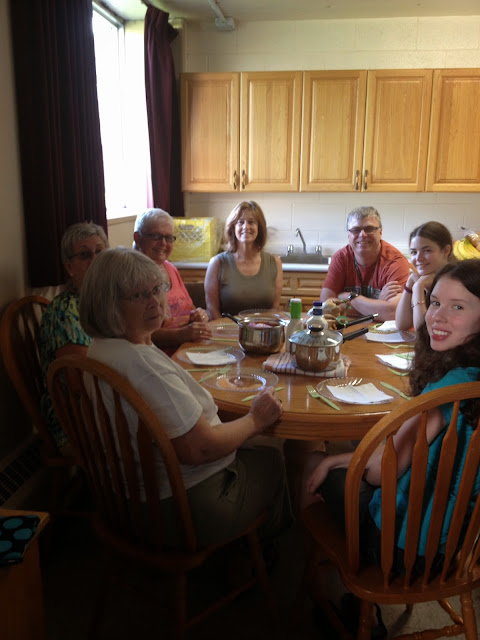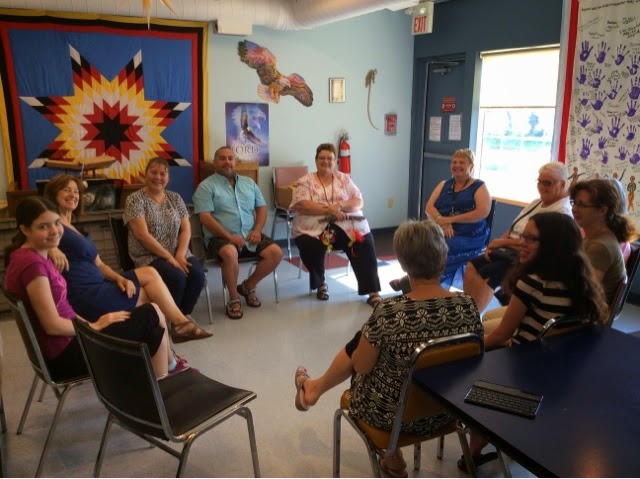Why are we so sure that it was vital that we come? Because we have received that message loud and clear from everyone at all involved in the ministry that we have met and from the children and young people and families. Is that because of all the work that we did for them? Well, not exactly. They certainly appreciated everything that we did. Whether it was painting Flora House (and, yes, we did manage to get the main hall and the front and back entrances painted in our time with a little help from Derek) or organizing clothes and goods in the miracle store, weeding Papa's Garden, helping to keep the kids or youth organised and safe on outings or cleaning out mountains of cardboard, everything was fully appreciated. Rev. Margaret Mullin's head seemed to be constantly at work trying to come up with something else for us to do. But we were appreciated more than what we did.
From the moment we arrived, Rev. Mullin made one thing perfectly clear: we would have to leave our mark behind us. It would not be enough to paint Flora House a nice bright colour. We would have to each leave our personal handprints behind us, though she did allow us to decide what our hand prints would look like and we chose to arrange them in the colour wheel that they use at Anishanabe.
See, they caught me red handed.
In addition, the painting of a new mural by our team in the Miracle Store was deemed so important that Alexis, Gabrielle and Joni were given almost all of our last day to work on it. This was clearly a priority. Why? I mean, yes, the mural that Alexis designed is beautiful and it will be enjoyed for a long time. But why was it so vital?
Some First Nations people do not like to have their picture taken. They find it disrespectful - as if someone is stealing a piece of themselves from them. Jane is one such native woman. Through many years working with Winnipeg Inner City Mission, she has always refused to have her picture taken even by people that she loves dearly. But on the last day, once the mural had been finished, a miracle occurred. Joni respectfully asked Jane if she would consent to have her picture taken with the mural and the girls and she agreed. She did not do so lightly. In fact, she had considered the possibility long and hard the night before.
I have a copy of the picture with Jane, but I will not be sharing it here on this blog because I understand that it was Jane's intention to give a gift to Gabrielle and Alexis - a little piece of herself willingly given for them to take with them just as they were leaving a piece of themselves in the mural. It was a very special and precious gift but it was a private gift for them - one that they will long treasure. It doesn't belong on the internet.
Here is my understanding of why our coming to them is so important to them. Native ministry in the inner city of Winnipeg is tough - really tough. But one thing that makes it tougher is the sense that no one else cares. Yes, the national church does support some of the ministry positions through Presbyterian Sharing... and, yes, there are many faithful supporters spread across the country, but when you are faced with so many examples of apathy and even open hostility to the work being done there, it is very easy to fall into the feeling that you are all alone and that nobody really cares. When people like us come and are not afraid to roll up our sleeves and do some work, it is a vital reminder that people - white church people - do care a great deal. It lifts their spirits to know that they are not alone. But the trips are short and the people leave too soon (way too soon it seemed in our case). That is why it is so vital to them that we leave a piece of ourselves behind. They need to remember us. They need reminders on their walls and on their sidewalks (like in this cement poured by a previous team outside the miracle store) so that they do not forget us and fall back into despair. It matters that we came.
So if anyone out there is considering making a mission trip to the Winnipeg Inner City Mission, we can highly recommend it. You will make a difference. You will feel loved and appreciated. It will matter that came.
We are home now and this is my blog for the final day there. But I know that I am not finished reflecting on our time there. Give me a few more days to process and I am sure I'll have lots more to say. Thanks for listening
s
